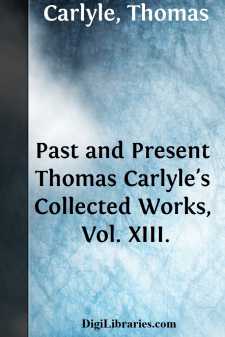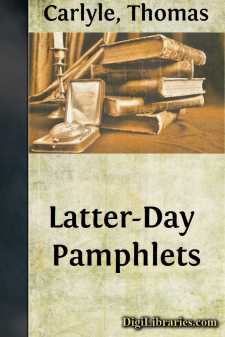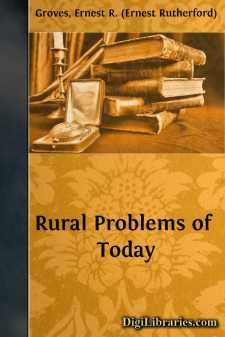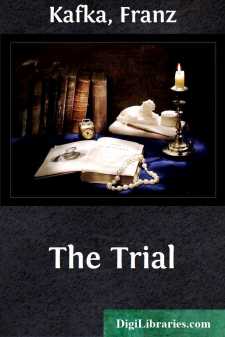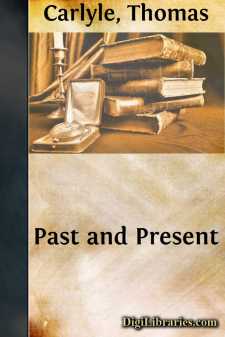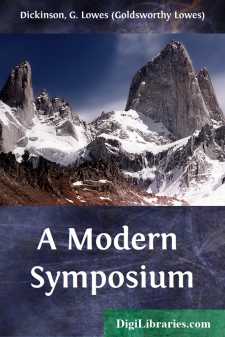Categories
- Antiques & Collectibles 13
- Architecture 36
- Art 48
- Bibles 22
- Biography & Autobiography 813
- Body, Mind & Spirit 142
- Business & Economics 28
- Children's Books 17
- Children's Fiction 14
- Computers 4
- Cooking 94
- Crafts & Hobbies 4
- Drama 346
- Education 46
- Family & Relationships 57
- Fiction 11829
- Games 19
- Gardening 17
- Health & Fitness 34
- History 1377
- House & Home 1
- Humor 147
- Juvenile Fiction 1873
- Juvenile Nonfiction 202
- Language Arts & Disciplines 88
- Law 16
- Literary Collections 686
- Literary Criticism 179
- Mathematics 13
- Medical 41
- Music 40
- Nature 179
- Non-Classifiable 1768
- Performing Arts 7
- Periodicals 1453
- Philosophy 64
- Photography 2
- Poetry 896
- Political Science 203
- Psychology 42
- Reference 154
- Religion 513
- Science 126
- Self-Help 84
- Social Science 81
- Sports & Recreation 34
- Study Aids 3
- Technology & Engineering 59
- Transportation 23
- Travel 463
- True Crime 29
Sort by:
by:
Thomas Carlyle
CHAPTER I. MIDAS. The condition of England, on which many pamphlets are now in the course of publication, and many thoughts unpublished are going on in every reflective head, is justly regarded as one of the most ominous, and withal one of the strangest, ever seen in this world. England is full of wealth, of multifarious produce, supply for human want in every kind; yet England is dying of inanition....
more...
by:
Thomas Carlyle
NO. I. THE PRESENT TIME. [February 1, 1850.] The Present Time, youngest-born of Eternity, child and heir of all the Past Times with their good and evil, and parent of all the Future, is ever a "New Era" to the thinking man; and comes with new questions and significance, however commonplace it look: to know it, and what it bids us do, is ever the sum of knowledge for all of us. This new Day,...
more...
by:
Stanton Coit
I. TRADE TYPICAL OF CIVILIZATION In choosing "The Morals of Trade" as the general title of the Weinstock Lectureship, I am informed that its founder meant the word "Trade" to be understood in its comprehensive sense, as commensurate with our whole system of socialized wealth—at least, upon the present occasion I shall interpret it in this broad way. I shall furthermore ask you to...
more...
by:
Charles Mackay
Every age has its peculiar folly—some scheme, project, or phantasy into which it plunges, spurred on either by the love of gain, the necessity of excitement, or the mere force of imitation. Failing in these, it has some madness, to which it is goaded by political or religious causes, or both combined. Every one of these causes influenced the Crusades, and conspired to render them the most...
more...
THE RURAL WORKER AND THE COUNTRY HOME With reference to the care of children, faulty homes may be divided into two classes. There are homes that give the children too little care and there are homes that give them too much. The failure of the first type of home is obvious. Children need a great deal of wise, patient, and kindly care. Even the lower animals require, when domesticated, considerable care...
more...
by:
Franz Kafka
Chapter One Arrest - Conversation with Mrs. Grubach - Then Miss Bürstner Someone must have been telling lies about Josef K., he knew he had done nothing wrong but, one morning, he was arrested. Every day at eight in the morning he was brought his breakfast by Mrs. Grubach's cook - Mrs. Grubach was his landlady - but today she didn't come. That had never happened before. K. waited a little...
more...
by:
Irwin Edman
Page iii FOREWORD This book was written, originally and primarily, for use in a course entitled "Introduction to Contemporary Civilization," required of all Freshmen in Columbia College. It is an attempt to give a bird's-eye view of the processes of human nature, from man's simple inborn impulses and needs to the most complete fulfillment of these in the deliberate activities of...
more...
by:
Thomas Carlyle
INTRODUCTION Being an appreciation from "The Dial" (July 1843) by Ralph Waldo Emerson Here is Carlyle's new poem, his Iliad of English woes, to follow his poem on France, entitled the History of the French Revolution. In its first aspect it is a political tract, and since Burke, since Milton, we have had nothing to compare with it. It grapples honestly with the...
more...
A MODERN SYMPOSIUM OME of my readers may have heard of a club known as the Seekers. It is now extinct; but in its day it was famous, and included a number of men prominent in politics or in the professions. We used to meet once a fortnight on the Saturday night, in London during the winter, but in the summer usually at the country house of one or other of the members, where we would spend the...
more...
by:
C. J. Hogarth
I — THE TUTOR, KARL IVANITCH On the 12th of August, 18— (just three days after my tenth birthday, when I had been given such wonderful presents), I was awakened at seven o'clock in the morning by Karl Ivanitch slapping the wall close to my head with a fly-flap made of sugar paper and a stick. He did this so roughly that he hit the image of my patron saint suspended to the oaken back of my bed,...
more...


